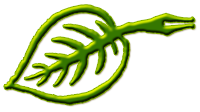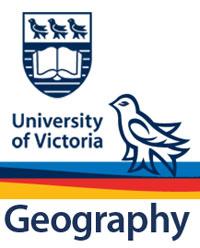Europe, a continent of rich and diverse history that will soon be home to 32 more Canadians - at least for the next 4 weeks. During the Victoria portion of our field school, we were fortunate enough to have two UVic professors come in and teach us about Europe; Dr. Valerie D'Erman and Dr. Emmanuel Brunet-Jailly.
But first, Cam (Dr. Owens) gave us a lecture on our destinations and showed us an abundance of maps, which naturally made the group excited since it is a geography field school after all. These maps included, but are not limited to, topics such as:
- Population density
- Topography
- Word maps
- Religion
- Political boundaries and their changes over time
- Physical geography
From this we gained a strong understanding of Northern Europe's current state. Some examples of what we learned are:
- Most people don't attend church regularly
- The language spoken in most countries is Germanic of origin
- Some of the countries we're going to, use the Euro (the Netherlands, Germany) and some do not (Sweden, Denmark)
- Iceland is not even a member of the E.U. (European Union)
After Cam's inspiring speech, Dr. Valerie D'Erman came and talked to us about the integration of Europe and the creation of the E.U.. The EU started as the The European Coal and Steel Community, as an effort to integrate Germany and France so that they were codependent on each other for an important military resource. This tactic was taken to reduce the chance of future war. We also learned about the technical functions of the E.U.. For example, the Commission is in charge of the overall decision making, the Council is made up of National ministers who bargain for decisions, and the Parliament, who are directly elected,can dismiss the commission. Interestingly, they sit with ideological groups instead of their country! Another interesting thing was that the E.U. might be getting too big to run democratically. The thing with supranationalism is there is really no end point... so it could keep going and going, and could potentially collapse or remain standing (the points of view depend on your own politics/opinion). Also important notes are that the E.U. can't impose any taxes, foreign aid from any of the members comes forward under the blanket of the entire E.U. and lastly the E.U. is home to free trade within it's member nations. Thanks to Dr. D'Erman's lecture, we felt more confident about our understanding of European politics but also inspired us to ask questions and learn more about the current state of the E.U. once we're over there. It would be especially interesting to note the variety in opinions of the E.U. from citizens of the different countries that we are going to, where they can see the E.U. ending up and what their thoughts are on the exclusion of some countries from the E.U. (i.e. Turkey).
Lastly, Dr. Emmanuel Brunet-Jailly came and talked to us about European Cities. His lecture was structured around the academic work of Peter Hall, a British urban planning theorist. Dr. Brunet-Jailly believed that:
- transport technology & sustainable urbanism
- inequality
- family & societal challenges
were the main problems that the urban order faced. Peter Hall (and Dr. Brunet-Jailly) believed that in order for a creative city to form, the city must be "disrupted" by its citizens through the use of:
- a "deep dung of cash
- bourgeois order
- talent
The lecture had it's roots in the foundation of urban morphology with the importance of sewage and later transportation being the keys to a successful city. Not everyone agrees with these ideas however, as we heard a vastly different perspective earlier in the week from Mark Lakeman of Dignity Village in Oregon.
Dr. Brunet-Jailly also talked about Hall's point of view that a city either is state run (i.e. Tokyo and European Cities) or market run (i.e. North America) which sparked some questions in our minds as whether or not these are in fact the only two possibilities of a city. What about a city led by grassroot movements? Do any of these such exist? It's questions like these that we are out to answer on our field school. Breaking down silos and making sure to engage a variety of urban interests were other key messages during the lecture d lastly, we were shown the E.U. Smart Cities program - a program which maps out and assists innovative programs across Europe that move to improve city life. This ties in well with the lesson that Europe tends to focus on urban quality while developing cities and North America takes a much more economically based approach.
All in all, it was a incredibly informative and inspiring morning, thanks to Cam, Dr. D'Erman and Dr. Brunet-Jailly! With this knowledge, we feel prepared to broaden our horizons even more as we head out on this adventure.

